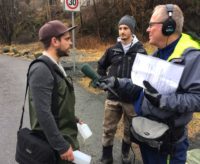Three biologists share their impressions from the MNT conference
The MNT conference 2017 is now over, and many are back from Oslo with news ideas and contacts, certainly an extended to-do list, various feedback on personal contributions (see bioCEED’s contributions here). Three of us take a moment to share their views and impressions on the conference, and bring up some highlights.
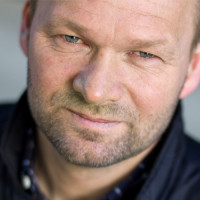 Øyvind Fiksen, Professor at BIO in Bergen, Course Leader BIO201 and BIO301:
Øyvind Fiksen, Professor at BIO in Bergen, Course Leader BIO201 and BIO301:
I really enjoyed learning about the approach the MN-Faculty at UiO currently develops to create a better learning environment and to welcome and integrate students into life at the University. This was a well-structured morning plenary session on Friday, with contributions from leaders, teachers and administrators from MN at UiO. The project is called ‘Interact – Culture for learning’ and focus on active learning methods, the collegial culture among teachers, the learning environment and implementation of ‘backwards design’ across all levels. The MN-Faculty is doing a series of innovative revisions of their study programmes, involving a deeper integration of computational and quantitative skills throughout their degrees. The goal is to develop entrepreneurship and problem solving abilities in the students, and increasing their employability.
The Faculty is very serious about the students learning environment. Thriving is a prerequisite for learning and personal development, and the Faculty is growing pride, identity and sense of belonging in the students by for example taking them to a two-day seminar at a conference hotel, and by offering individual discussions and supervision at an early stage. The presenters were all very engaging, but perhaps the moment of the day was Villanger’s talk about how we all have a responsibility in making students feel at home by following MSHRL (Met, Seen, Heard, Respected, Liked/Loved). He referred to a student saying: ‘I need someone to send me an SMS when I do not show up’, and he instructed teachers to ‘appreciate the smell of wet students in the auditorium on a rainy day’. Villanger reminded us, eloquently, that students are human beings, with social needs and emotions.
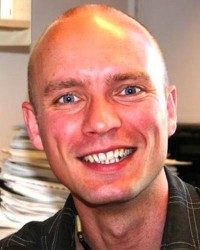 Gaute Velle, Professor II at BIO in Bergen, Project Leader Prime, Course Leader BIO298:
Gaute Velle, Professor II at BIO in Bergen, Project Leader Prime, Course Leader BIO298:
For me, the highlight of the conference was the keynote «Helping students perform their best under stress», presented by psychology professor Sian Beilock (University of Chicago). The talk was centered on the anxiety that some persons feel when they perform certain subjects or activities, such as students in a math tests. Persons that have this anxiety will underperform compared to their expected level of performance. Somewhat surprising, the anxiety is not a proxy for poor performance, but related to the performance for high achieving students. It may be that that the anxiety is triggered by a burden of expectation that the student sense from parents, teachers and even themselves. As teachers and parents, we can avoid creating anxiety by stimulating effort rather than performance.
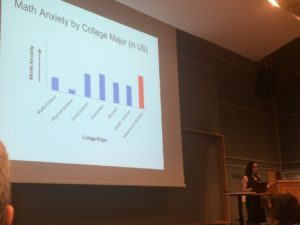
Of great relevance for higher education in biology, the anxiety of a student is correlated to the anxiety of the teacher; students that have teachers with math anxiety are more likely to develop math anxiety. Likewise, children that have parents with math anxiety are more likely to develop math anxiety. It is not necessarily what the teacher does that induces anxiety, but rather what the teacher does not do. For example, regular avoidance of math during teaching of other subjects, such as English or biology, can promote math anxiety. Statistics is important in biology. By including statistical reasoning in the teaching of biology or over coffee-time discussions with students (or our children!), the students are more likely to develop a sound non-anxious relationship to statistics.
And what is the best advice if you feel stressed and nervous before a test or a performance? Journaling. Write down your fears before you start.
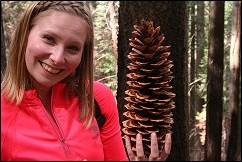 Ragnhild Gya, Deputy Student Representative at BIO in Bergen:
Ragnhild Gya, Deputy Student Representative at BIO in Bergen:
I am studying the integrated teaching program with a masters in biology. One of the roundtable discussions was about this program, so it was very natural for me to go there. The roundtable discussion was called “Facilitating opportunities for teaching students to learn how to teach in their first semester”. At the science and mathematics department of UiB all students need to sit a basic math course the first semester, which is based on lectures and seminars. A trial run has been done the last couple of years, where the students of the teaching program have gotten the challenge to teach some part of the seminars… and which has been working well. Until the fourth year the teaching program only has one week long practical periods once every fall semester, where they get to go out to schools where they mostly observe, and are therefore lacking in opportunities to try out their teaching skills. These seminars are therefore a nice way for them to get some more practical experience in their education.

